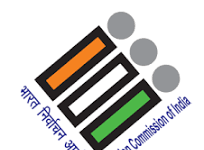Prime Minister Narendra Modi said the e-courts project is being implemented today in mission mode.
The union government considers the possibilities of technology in the judicial system as an essential part of the Digital India mission, he said.
He appealed to the Chief Ministers and Chief Justices of High Courts to take this forward.
Further over usage of technology, Modi said nowadays, subjects like block-chains, electronic discovery, cyber security, robotics, AI and bioethics are being taught in law universities in many countries.
“It is our responsibility that in our country also legal education should be according to these international standards”, he said.
He inaugurated a joint conference of the chief ministers of states and the chief justices of high courts on Saturday.
Today, there are about 3.5 lakh prisoners in the country who are under-trial and are in jail, he said.
Most of these people are from poor or ordinary families, he pointed out. In every district there is a committee headed by the district judge, so that these cases can be reviewed and wherever possible, such prisoners may be released on bail, the PM said.
“I would appeal to all Chief Ministers and Chief Justices of High Courts to give priority to these matters on the basis of humanitarian sensibility and law”, Modi added.
In his address, Chief Justice of India Justice N.V. Ramana said this is an opportunity for us to learn from your rich experience, knowledge, and wisdom that you have acquired in public life. You are the live link with the people.
In your own way, each one of you is a great opinion builder, he said.
The Constitution provides for separation of powers between the three organs – clearly outlining their sphere of functioning, delineating their powers and responsibilities, the CJI said.
It is the harmonious and co-ordinated functioning among the three organs of the State that has preserved and strengthened the democratic foundations of this great nation over the last seven decades, the CJI said.
“The concept of ‘Access to Justice’ in India is much broader than simply providing lawyers for representation before Courts. I am proud to state that, India has one of the best free legal aid services in the entire world”, the CJI said.
Speaking on the occasion, Union Minister for Law and Justice Kiren Rijiju said the august gathering is reflective of our collective commitment towards the guiding principles of this government – Sabka Saath, Sabka Vikas, Sabka Vishwas, Sabka Prayas.
Rijiju informed the Centrally Sponsored Scheme for development of Infrastructure Facilities for Judiciary has been extended till 2025-26 with a budgetary outlay of Rs. 9,000 crores including the central share of Rs. 5,307 crores.









